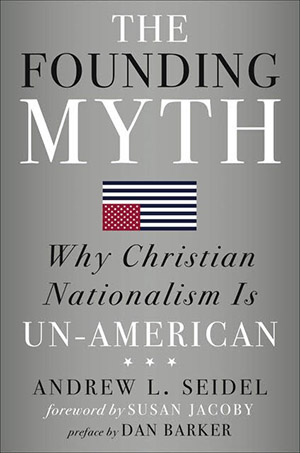Christian or Nothing: Buddhist Prisoner to be Executed Without Buddhist Chaplain (Updated)
In the rare instances when courts roll back Christian privilege, the cries of persecution are swift. But parity is not oppression. And the erosion of unwarranted privilege is not persecution; it is the steady march toward equality.

UPDATE, March 29, 7:20 a.m.: The Supreme Court did the right thing and stayed Murphy’s execution at the 11th hour. Chief Justice John Roberts, Justice Samuel Alito, and Justice Brett Kavanaugh changed their votes from the nearly identical Alabama case mentioned above. Several observers attribute the change of heart to the strong dissent written in that case.
“It’s happening again.” American justice seems to favor Christians, everyone else be damned. Texas is set to execute Patrick Murphy, who became a Buddhist a decade ago, and the state gave Murphy a choice: he can have either “a Christian prison chaplain or no chaplain present.”
“Die with our god or die alone,” the Lone Star State appears to be saying. Murphy challenged this as a violation of his First Amendment right to religious freedom. He lost at the lower court and is set to be executed today. The appeal is pending.
Last month, the Supreme Court did the same thing, denying a Muslim man access to a Muslim cleric during his execution. Why? Because he waited too long to ask. We are in such a rush to kill prisoners that we cannot honor their constitutional right to religious liberty.
Pause to appreciate the hypocrisy here, which is at least threefold. First, if this were a Christian murderer to be executed, he’d have spiritual comfort. It’s only those pesky minority religions whose rights get trampled. Second, the courts are saying that keeping to a schedule is more important than our “first freedom”—at least when it comes to those of minority faiths. Finally, think of the Supreme Court’s other decisions involving religion and the government.
Think of the Trinity Lutheran decision, which held that excluding a church-run school from a statewide grant program was religious discrimination. There, “only a state interest ‘of the highest order’ [could] justify the Department’s discriminatory policy.” Apparently, killing someone on schedule is a state interest of the highest order.
Or think of Masterpiece Cakeshop, the gay wedding cake case in which the court essentially allowed this one instance of discrimination against LGBTQ citizens by a bakery because the state said some mean things about the bakery owner’s religion during the state’s enforcement action. Justice Kennedy explained that Colorado’s “hostility was inconsistent with the First Amendment’s guarantee that our laws be applied in a manner that is neutral toward religion.”
Christian privilege exists in America, even on death row. In the rare instances when courts roll back that privilege, the cries of persecution are swift. But parity is not oppression. And the erosion of unwarranted privilege is not persecution; it is the steady march toward equality.
Delaying an execution to give a condemned man spiritual comfort costs us nothing, except the sanctity of that unjustified and unjustifiable Christian privilege. That’s what these judges are protecting and in doing so they are undermining the very Constitution they swore to protect. This is just plain wrong.


